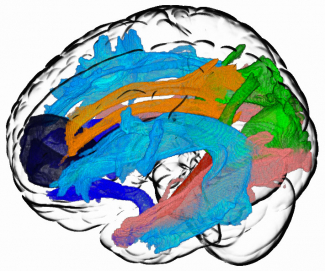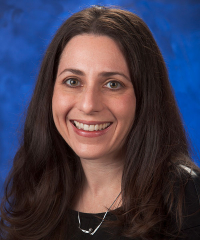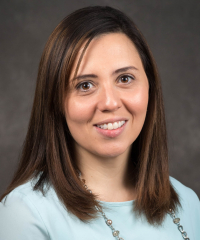
Each year, the Wisconsin Alzheimer's Disease Research Center presents the Alzheimer's Disease & Related Disorders Research Day. The event is designed to encourage collaboration and promote scientific thought among faculty, students, and researchers from a wide range of disciplines across the UW-Madison campus.
The following is the Agenda for the 2020 event:
PM
12:30 — Registration, Poster Session
1:00 — Opening Remarks
1:20 — "Moving Beyond Reactive Approaches: A Paradigm Shift in Dysphagia Management for Persons with Alzheimer's Disease" by Nicole Rogus-Pulia, PhD, CCC-SLP
1:45 — Abstract Mini Presentations
- "Trajectory of Clinical Symptoms Accelerates after 10 Years of Amyloid" — Alex Birdsill, PhD
- "Effect of Metabolic Syndrome Risk Factors on Processing Speed in 3 Racial Groups" — Shenikqua Bouges, MD
- "J20 Alzheimer’s Disease Mice Exhibit an Altered Circadian Actigraphy Profile" — Alejandra Gutierrez, BS
- "Muscle Gene Expression May Coincide with Vocal and Swallowing Changes in a Translational Rat Model of Parkinson's Disease" — Cynthia Kelm-Nelson, PhD
- "Systematic Review of Physical-Activity-Focused Interventions for Adult Caregiver-Care Recipient Dyads: What's Best for Spousal Caregivers?" — Kecia Doyle Greene, MS
2:30 — Break
2:45 — "The Alzheimer’s Prevention Initiative Program: Accelerating the Evaluation of Prevention Therapies" by Jessica Langbaum, PhD
3:30 — Poster Session and Reception in Open Court
4:30 — Presentation of Poster Awards and Closing Remarks
Download a PDF of the 2020 Alzheimer's Disease & Related Disorders Research Day Agenda.
Registration
Registration is closed for this event.
Call for Posters
The deadline for submission has passed. All invited abstract presented have been contacted. Awards will be given to top poster presenters in the following categories: Best Undergraduate Research Poster; Best Graduate Student or Research Specialist Poster; and Best Fellow, Post Doc, or Research Scientist Poster.
Please note, poster boards at the Discovery Building are 46 inches by 46 inches.
For poster session questions, please email Sheryl Spensley.
Featured Speakers

Jessica Langbaum, PhD, is the co-director of the Alzheimer’s Prevention Initiative (API) at Banner Alzheimer’s Institute, where she also directs the Alzheimer’s Prevention Registry and its GeneMatch program. Her research is focused on (1) establishing the science of participant recruitment and retention for Alzheimer’s prevention studies, including designing and executing participant recruitment registries, (2) assessing the impact of genetic testing and risk disclosure, in particular disclosure of APOE and other biomarker (e.g., brain amyloid) results, and (3) designing and executing preclinical AD treatment studies, including developing sensitive, novel composite cognitive test scores for use as primary endpoint measures. She has published numerous papers on these topics.
Dr. Langbaum serves on several national and international advisory boards. She received her bachelor's degree in neuroscience and psychology with high honors from Oberlin College and her PhD in psychiatric epidemiology from the Johns Hopkins University Bloomberg School of Public Health.

Nicole M. Rogus-Pulia, PhD, CCC-SLP, is an assistant professor in the departments of Medicine and Surgery at the University of Wisconsin School of Medicine and Public Health and a Wisconsin ADRC Research Education Component (REC) Scholar. She directs the Swallowing and Salivary Bioscience Research Program in the Geriatric Research Education and Clinical Center (GRECC) at the William S. Middleton Memorial Veterans Hospital and the multi-site Veteran Health Administration’s (VHA) Intensive Dysphagia Treatment (IDT) program. Dr. Pulia leads a translational research program focused on dysphagia in patients with Alzheimer’s disease.
About our event logo image
Kao Lee Yang, MS, created this figure on "MRIcroGL," which is a program that can be used to design and display multi-dimensional medical images. It depicts a 3-dimensional outline of a brain overlaid with maps of major white matter tracts that are present in human brains. Each color represents a white matter tract.
Image © 2019 Kao Lee Yang



